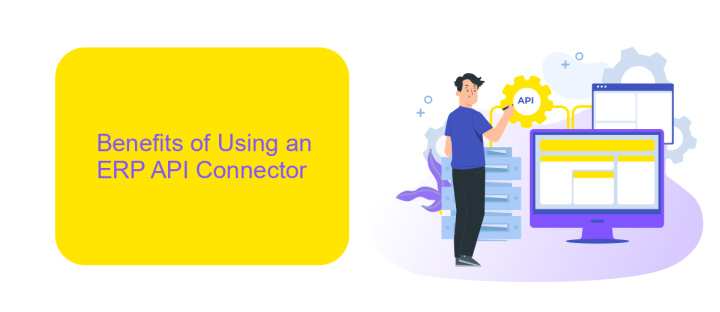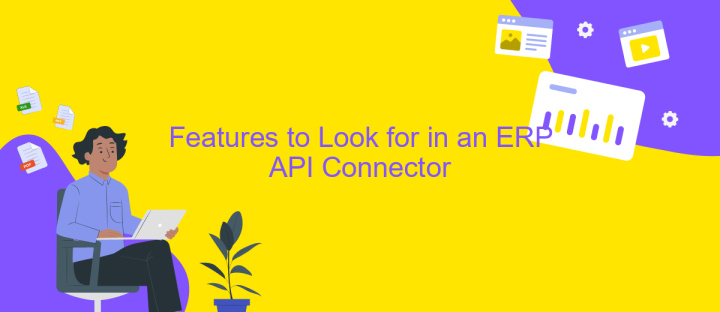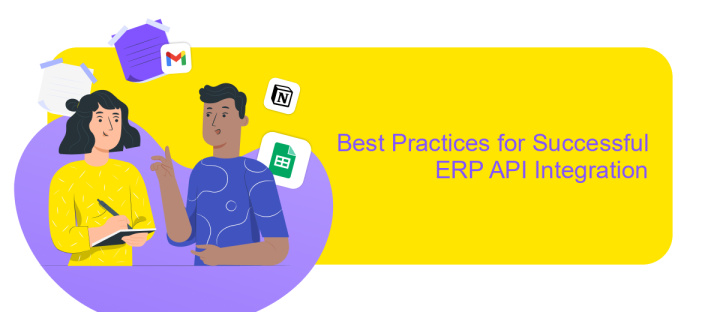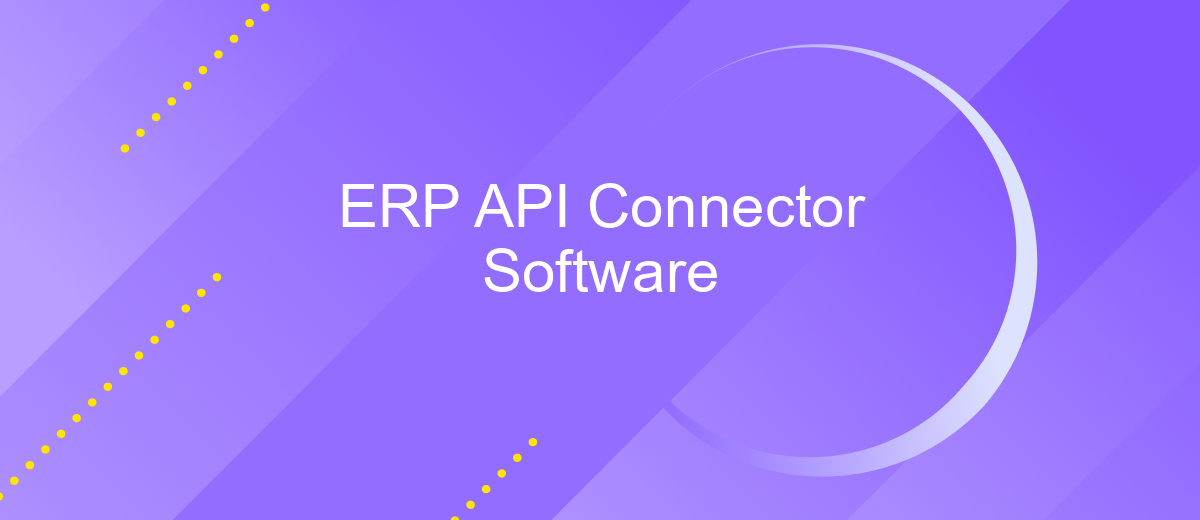ERP API Connector Software
In today's fast-paced business environment, seamless integration between enterprise resource planning (ERP) systems and other applications is crucial for operational efficiency. ERP API Connector Software serves as a vital tool, enabling businesses to effortlessly connect and synchronize data across diverse platforms. By streamlining processes and enhancing data accuracy, these connectors empower organizations to make informed decisions, improve productivity, and maintain a competitive edge in the ever-evolving digital landscape.
Introduction
In today's fast-paced business environment, integrating various software systems is crucial for streamlined operations and enhanced productivity. ERP API Connector Software plays a vital role in connecting disparate enterprise resource planning (ERP) systems with other applications, enabling seamless data exchange and process automation. By leveraging these connectors, businesses can achieve improved efficiency, reduced manual errors, and better decision-making capabilities.
- Facilitates real-time data synchronization across multiple platforms.
- Reduces the need for manual data entry, minimizing errors.
- Enhances scalability by easily integrating new applications.
- Enables customized workflows tailored to specific business needs.
- Improves overall operational efficiency and productivity.
As organizations continue to adopt diverse technological solutions, the demand for robust ERP API Connector Software is on the rise. These connectors serve as a bridge, ensuring that all systems work harmoniously together, thus optimizing business processes. Investing in a reliable ERP API Connector can significantly impact an organization's ability to adapt to changing market conditions and technological advancements, making it an indispensable tool for modern enterprises.
Benefits of Using an ERP API Connector

Implementing an ERP API connector can significantly enhance the efficiency and flexibility of business operations. By seamlessly integrating various software applications, an ERP API connector ensures that data flows smoothly between different systems, eliminating the need for manual data entry and reducing the risk of errors. This integration allows businesses to have real-time access to critical information, enabling better decision-making and improved productivity. Moreover, it facilitates the automation of routine tasks, freeing up valuable human resources to focus on more strategic activities.
Another key benefit of using an ERP API connector is its scalability and adaptability. As businesses grow and evolve, their software needs can change. An ERP API connector, like ApiX-Drive, offers a flexible solution that can easily accommodate new applications and services, ensuring that the ERP system remains aligned with business objectives. ApiX-Drive, for example, provides a user-friendly platform for setting up integrations without the need for extensive technical knowledge. This accessibility empowers businesses to quickly adapt to changing market conditions and technological advancements, maintaining a competitive edge.
Features to Look for in an ERP API Connector

When selecting an ERP API connector, it is crucial to identify features that enhance integration efficiency and data management. A well-designed connector can streamline processes and improve business operations by ensuring seamless data flow between systems.
- Scalability: The connector should handle increasing data volumes and support the growth of your business without compromising performance.
- Security: Look for robust security measures, including data encryption and access controls, to protect sensitive information.
- Real-time Data Sync: Ensure the connector supports real-time data synchronization to maintain up-to-date information across platforms.
- Customizability: The ability to customize the connector to fit specific business needs is essential for maximizing its utility.
- Ease of Use: A user-friendly interface and straightforward setup process can save time and reduce the need for extensive training.
An effective ERP API connector enhances operational efficiency by providing seamless integration and reliable data exchange. By focusing on these key features, businesses can ensure that their chosen connector aligns with their strategic objectives and technological requirements, ultimately driving better decision-making and performance.
Best Practices for Successful ERP API Integration

Integrating an ERP API can be a transformative step for businesses seeking to enhance their operational efficiency. However, successful integration requires careful planning and execution. Start by thoroughly understanding the ERP system's capabilities and the specific API functionalities. This foundational knowledge will guide the integration process and help identify potential challenges early on.
Next, ensure clear communication between all stakeholders, including developers, IT staff, and end-users. This collaborative approach helps align the integration goals with business objectives and ensures everyone is on the same page. Regular updates and feedback loops can further streamline the process.
- Define clear objectives and key performance indicators (KPIs) for the integration.
- Ensure data consistency and integrity across systems.
- Test the integration thoroughly before full deployment.
- Provide comprehensive training and support for users.
- Monitor and optimize the integration continuously post-launch.
Finally, prioritize security throughout the integration process. Implement robust authentication and authorization measures to protect sensitive data. Regularly update and patch the system to address vulnerabilities. By following these best practices, businesses can achieve a seamless and secure ERP API integration.


Case Studies and Success Stories
One of the standout success stories in the realm of ERP API Connector Software is a mid-sized manufacturing company that streamlined its operations through seamless integration. By leveraging an advanced API connector, the company was able to unify its disparate systems, resulting in a 30% increase in operational efficiency. This integration allowed for real-time data flow between their ERP and CRM systems, eliminating manual data entry and reducing errors. The company reported significant time savings, which enabled their team to focus on strategic growth initiatives.
Another compelling case involves a retail chain that utilized ApiX-Drive to enhance its e-commerce platform. By integrating their ERP with various online marketplaces, the retail chain achieved a 25% boost in online sales. ApiX-Drive facilitated the synchronization of inventory and order data, ensuring accurate stock levels and timely order processing. This integration not only improved customer satisfaction but also optimized the supply chain, leading to reduced operational costs. These success stories underscore the transformative impact of ERP API Connector Software in today's business landscape.
FAQ
What is an ERP API Connector Software?
How does an ERP API Connector work?
What are the benefits of using an ERP API Connector?
Can I customize the integrations with an ERP API Connector?
What should I consider when choosing an ERP API Connector?
Strive to take your business to the next level, achieve your goals faster and more efficiently? Apix-Drive is your reliable assistant for these tasks. An online service and application connector will help you automate key business processes and get rid of the routine. You and your employees will free up time for important core tasks. Try Apix-Drive features for free to see the effectiveness of the online connector for yourself.

